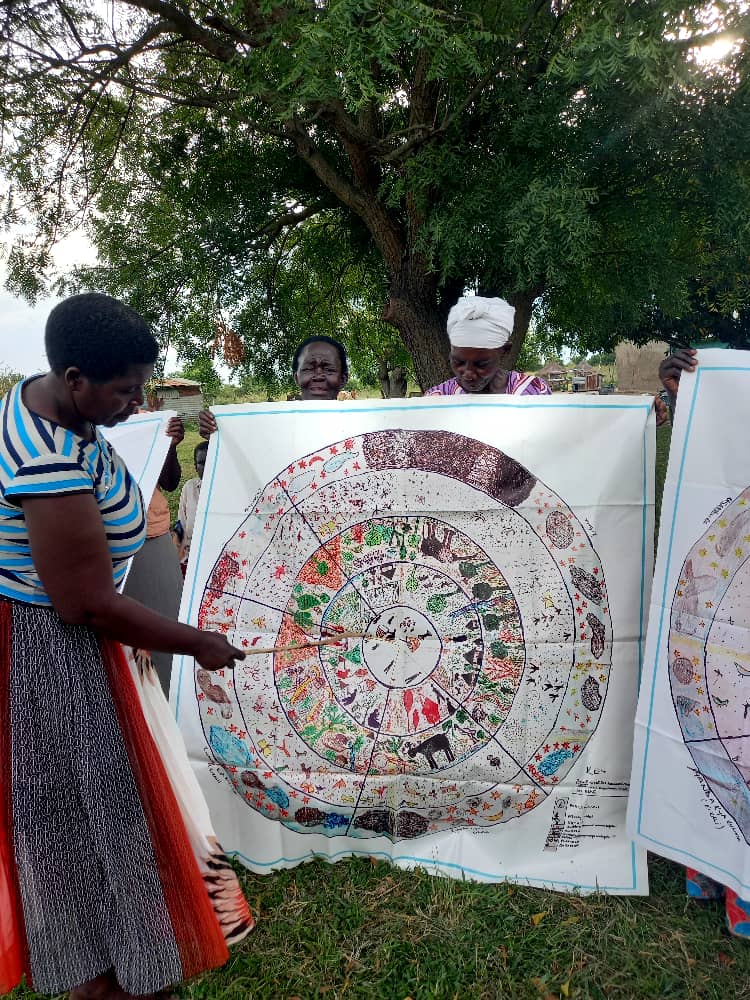
REALISATION OF RIGHTS OF NATURE THROUGH INDIGENOUS KNOWLEDGE
Various scholars have described and explained what indigenous knowledge is. What seems to be agreed as a conventional definition, which I also subscribe to, is that indigenous knowledge is that collection of information, ideas, skills, technology or and a body of knowledge acquired through intergeneration learning of a people over long period of time. We often talk about indigenous knowledge in relationship with indigenous people or local people in a specific geographic area.
The people I have discussed with this topic describe themselves as indigenous, basing the definition of their indignity on the story of their origin as told to them by their ancestors. A story of origin is not a history of a people but a story of how a people “appeared” or came into being, dating back from the creator. A story of origin is normally told by elders who got the same story from their ancestors and such a story (especially in Africa) is traced from a sacred place in form of a tree, forest, river, hill; located where these people are living now. The Bamassaba are indigenous people living around and on Mt Masaaba now known as Mt. Elgon in eastern Uganda and western Kenya. They are called so because they believe their ancestor came from, lived and disappeared, or died somewhere on this mountain. The mountain is sacred.
Indigenous people live with other non-human beings in a community. They are all one in one community; relating in different ways. They live in harmony with Nature and as part of Nature. They have acquired knowledge which was transferred to them from their ancestors. They have imparted this knowledge (albeit with increased loss and adaptation of some aspects) to their children, especially in relation to how they commune and or live with other beings (Nature). The knowledge is part of their traditional culture and not foreign or new culture from the people who have come to live with them on this land.
Indigenous people are lawful; and they live in a lawful Nature. There are sets of laws inherited from their ancestors (customary/ancestral laws) that conform to laws of Nature. The laws are not man-made. They are laws from Nature, communicated from Nature and obeyed by humans. Most important and inherent law is respect for the rights of other beings (Nature).
As indigenous people and the rest of humans, Nature lives on Mother Earth. Nature derives its life and rights from Mother Earth and so do humans. Humans do not have superior rights to Nature because where humans get their rights is also where other beings (Nature) get their rights. It is this recognition of this law that indigenous people have respected Rights of Nature!
What are these rights of Nature?
Because indigenous people live in harmony with Nature, they know her behavior and language. For example, indigenous people know the behavior and language of trees, animals, insects, water, birds, soil etc and are able to interpret and respond to these behaviors. When a tree flowers, sheds the leaves or grows new leaves, it is a sign of something which informs the people of a certain farming activity. When a certain animal makes an unusual sound, the people expect some thing wrong has happened and they respond to that behavior respectively by doing something. Among the Bagungu people along L. Albert (Mwitanzige) in Uganda, when Pajawu (Murchison Falls) makes an unusual sound, they start preparing their gardens for planting.
Should that behavior (Right) of a tree, animal, bird be violated and the tree or animal can no longer behave that way, some disorder in Nature occurs. An animal, a tree, a forest or a river manifests its right to be, to exist to reproduce, through a certain behavior and curtailing that behavior is violating its right! Consequently, indigenous people have learnt and adopted relevant laws to ensure that such behaviors(rights) are respected. The laws are, of course, embedded in their beliefs, customs and norms(culture); which when broken, the culprit is punished, either by nature itself or the community through various ways, including restorative justice.
Rights of Nature are defined in terms of Nature behavior. Indigenous people, with their age-old knowledge, have learnt these behaviors and corresponding customary laws to regulate their (behavior) violation. In all communities there are indigenous people with known customary laws (though not written). Where the laws were not weakened by foreign culture, ie religion, education and modernity, the Rights of Nature are strongly observed and respected; thus, sustainable relationship between humans and Nature. In communities where human law supersedes laws of Nature, human rights have completely surpassed Rights of Nature and Nature is at the mercy of humans; leading to total destruction.
This article recommends that the rights of indigenous people to their knowledge systems be recognized. Recognition of these knowledge systems begins by recognition of their cultures and associated customary laws on their landscapes, food and natural heritage.
By Tabaro Dennis Natukunda.
The author is the founder and Executive Director of African Institute for culture and Ecology (AFRICE-UGANDA)
He is a founder member of African Earth Jurisprudence Collective, an expert of UNHarmony with Nature Initiative and a member of Global Alliance for Rights of Nature(GARN)
Email; director@africeug.org / tabarodennis@yahoo.com
Website; www.africeug.org